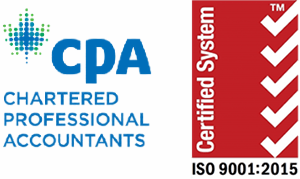Is it better to buy a car under your name personally, or through a corporation? And is it better to lease – or borrow money to acquire a vehicle?
These are the two most common questions we hear all the time when it comes to buying a car.
Questions to Consider
First, let’s address the question about whether it’s best to lease or buy. While most people believe this to be an accounting question, there are other factors that have a greater impact on your decision. For example:
- Do you want a brand new car or would you be a happy with a car that is a few years old?
- What are the current finance and lease rates?
- How many kilometres will you drive?
- Are you the type of person that will drive the same car for 12 years – or do you want a new car every few years?
These are the questions that ultimately affect your decision.
Tax Deduction
There are 2 methods for calculating the automobile expense: 1) mileage – and 2) actual expenses. In most situations the mileage nets a higher deduction. If you use the mileage rate, the deduction is the exact same whether you lease or buy. However, if you have an expensive lease – or simply don’t drive much – then using actual expenses may result in a greater deduction. So let’s evaluate the differences in deductions when using the actual method.
With leases you can deduct the total amount of the lease – up to a maximum of $800 a month (assuming you are Toronto-based as an example). With a purchase, you can deduct a percentage of the purchase price of the vehicle each year due to the vehicle’s depreciation in value. The maximum amount that can be depreciated for a passenger vehicle is $30,000. The vehicle can be depreciated at a rate of 15% in the first year, and 30% of the remaining balance for each subsequent year. While there is a difference between these two methods the bottom line savings is marginal.
If you’re going to buy or lease a car, we usually recommend that you do so under your own name and have your corporation reimburse you for its use of the vehicle. On the other hand, if the car is under a company name – and you use the car personally – you must reimburse the company for your personal use percentage of expenses, or take a taxable benefit into your personal income. You’ll also need to calculate a gain or loss when you sell the vehicle: this means more paperwork for your accountant and higher accounting fees for you. One of the great benefits of a corporation is limited liability. However, if your assets are owned by the corporation, you’ve limited the liability to all of your assets – which defeats the purpose.
When you’re making major life decisions such as purchasing or leasing a vehicle, we highly recommend you speak with your accountant to ensure you’re making the best decision. If you have any questions about automobile expenses – or are considering the lease or purchase of a new car – please feel free to contact us directly so we can discuss your particular situation, and assist you in making the right decision – for you.






